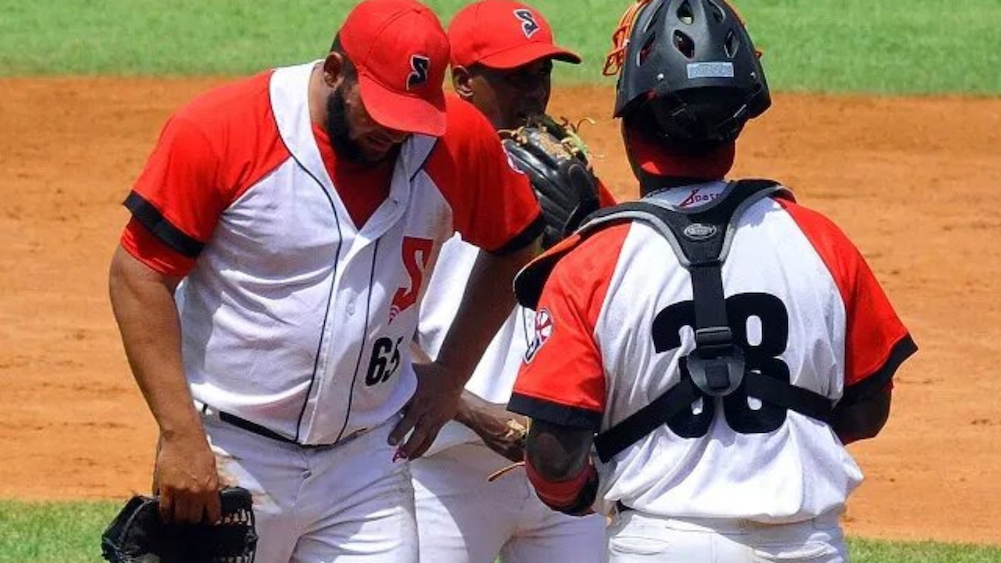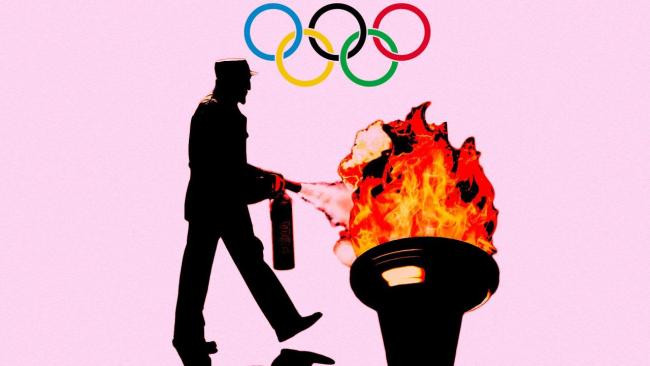No one is surprised by the collapse that baseball has undergone in every way in Cuba, a national sport since the last quarter of the nineteenth century, long before the country's independence.
The most visible cause of this decline in Cuba is the unstoppable exodus of players, who emigrate from the country almost daily. But this cause, in turn, has another greater one: the terminal crisis of Castroism-Communism.
We will start with the most visible aspects, with two questions: in any other country where baseball is played, do its players emigrate en masse? How many players in the National Baseball Series have emigrated?
The latest official data was released in January 2022 when the newspaper Trabajadores reported that 635 players have fled the island since 2016. But it is not known how many have left in the 17 months since then, let alone how many have left since René Arocha unleased the trend in 1992 when he signed with the St. Louis Cardinals.
The exodus of Cuban players is no longer news. But, until now Castroism-Communism, through this drainage of talent, and its shortcomings of all kinds, had not yet endangered the National Baseball Series. Now, its demise may be just around the corner.
A stadium with 55,000 seats and only 70 people watching the game
A few days ago (May 10, 2023), a former sports reporter for the newspaper Granma, Aliet Arzola, published a shocking photo on social media: the Latin American Stadium practically empty during a game between the capital city’s Industriales and the province of Granma’s team.
"There are barely 100 people (in the stadium) counting custodians, peanut sellers, press, commissioners, players on the DL today, and police," the journalist reported.
Where else in the world is it possible to find a 55,000-seat stadium with 70 or 75 people watching a game of the nation's most popular sport?
In Holguin, a journalist reported that "not even three wins in a row by the Holguin Cubs" got people go to the stadium.
Fidel Sovietized baseball, turning it into a slave
The seed of this disaster was sown by Fidel Castro in early 1962. He banned professional baseball in Cuba, Sovietized it, and said, "This is the triumph of free baseball over slave baseball."
But it was the other way around: it was he who enslaved Cuban baseball. He quashed both the historic Cuban Baseball League, founded in 1878, and the Cuban Sugar Kings, of the International League (Triple A), which was about to become part of the United States' MLB (before Canada's teams).
The strongman then created a banner of political propaganda with a professional national team disguised as amateurs in order to dominate international tournaments and uphold them as an "achievement of the Revolution," and of his own. Baseball, along with public health and education, became something to export and showcase the wonders of the "Revolution."
The dictator went to great lengths to make his state professionals look like amateurs. Each player was assigned an actual workplace and put on a payroll. They didn't have to go to their jobs, but they were paid as if they did. It was all perfect: they were portrayed as workers who, in their spare time, played baseball.
Leaving aside the indisputable quality of many Cuban players, the truth is that the international championships and gold medals won by Cuba since 1962, including 25 World Cups, were unfair. Cuba, fielding professional, state-backed veterans, beat amateur youths, mostly university students.
So, when professionals were allowed at the Olympics and other international events, the balloon began to deflate. Today Castroist baseball makes a fool of itself at international events, where it often does not win a single game.
And there is another point involved here, which is controversial: on the island, it is generally believed that baseball invented by Fidel has a Triple A level: the second highest, after the Major Leagues, in the United States.
Is this true? It is difficult to say, but the truth is that all the Cuban teams did not go up against, and do not today, with Triple A teams; not referring to the Cuban national team, but rather the national leagues and championships on Cuban soil.
Perhaps it had a Triple A level in the early years of the National Baseball Series, with players who had trained in professional baseball. Pedro Chavez, for example, the historic starter for Industriales, was sought by the New York Yankees and other Major League teams in 1957, but he didn't not want to leave his parents behind, according to the press.
Keep in mind that in the National Baseball Series hitters do not face pitchers throwing the ball 92-98 mph, and scary curve balls; nor do pitchers face hitters with the strength and intense, modern training of today in Triple A and Major League Baseball.
Thus, the level of the National Baseball Series today does not exceed that of a Double A team.
In the National Series, there is no doubt that there have been players who could have shone in the International League (Triple A) and even in America's MLB: Omar Linares, Antonio Muñoz, Pedro Chávez, Marquetti, Capiró, Kindelán, Changa, Urquiola, Anglada, Miguel Cuevas, Luis Girardo Casanova, Vinent, Alarcón, German Mesa, Félix Isasi, Antonio Pacheco, Cheíto Rodríguez, Lourdes Gourriel (Sr.), Víctor Mesa, Jorge Luis Valdés, Rodolfo Puente, Rogelio García and others come to mind. But not everyone has had, or has, such talent.
The reason is political: no one can escape the death throes of Castroism
All this baseball trivia, however, does not address the heart of the problem, which is political. For decades Castroist baseball was able to survive, and fool half the world, beating amateur teams because Cuba was financed by the Soviet Union, and then by Venezuela. But the gravy train is now gone.
The mask that disguised Cuban baseball has been removed, as now it has to sustain itself. Thus, it has sunk to sub-Saharan African levels. And this is not due to an economic crisis, but rather a multi-system crisis that will not be solved until the system that "does not work even for us" —as Castro I himself admitted— is dismantled.
It's simple: baseball is part of national life. As such, it cannot escape the country's general decline. Players cannot stand their miserable lives, and want to play baseball freely, manage their own careers, and not be slaves of a tyrannical regime. And they aspire to be millionaires, like their countrymen.
Speaking of millionaire players, in the current 2023 MLB season 29 Cubans are playing. Their combined salaries are likely to exceed the value of all Cuba's tobacco exports this year. They are led by José Abreu, with 19.5 million dollars this year; Yasmani Grandal (18.2); Yoan Moncada (17.8); Raisel Iglesias (16.0) and Jorge Soler (15.0).
How much do players earn on the island? They have a monthly salary of 31.04 dollars, or 3,724 Cuban pesos. Compare this salary with the 1.6 million dollars a month earned by Cienfuegos? "Pito" Abreue arns —exactly 51,546 times what a countryman of his who plays in the Augusto Cesar Sandino Stadium earns.
In Cuba, individual batting and pitching leaders receive an $8.33 (1,000 peso) bonus. Pitchers who work 120 innings and get 10 wins earn an extra $41, as do relievers with 32 appearances and 10 games saved.
Do we need to continue delving into the reasons why Castroist baseball is on the verge of collapse, and why no one can stop players from leaving?
Conclusion: Cuban baseball is also in danger of extinction - just like its beef, pork and milk. Raúl "the Cruel" will not be able to keep the National Baseball Series going for much longer if baseball is not liberated from the shackles in which it was placed by its misanthropic creator.

